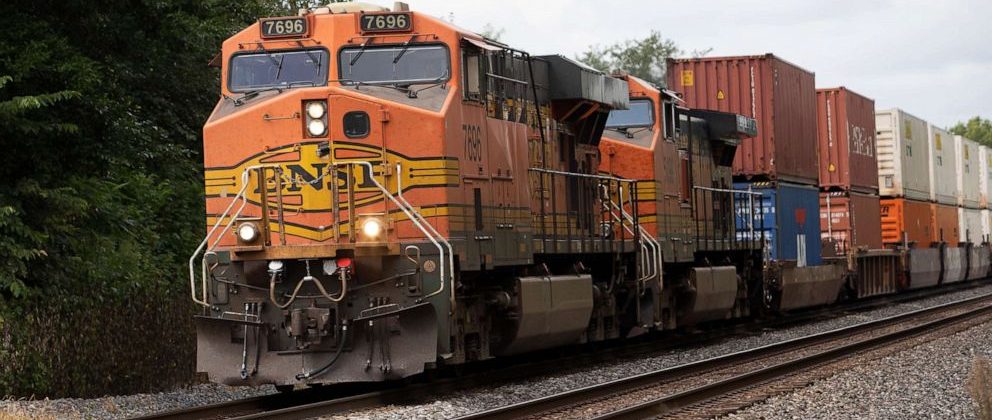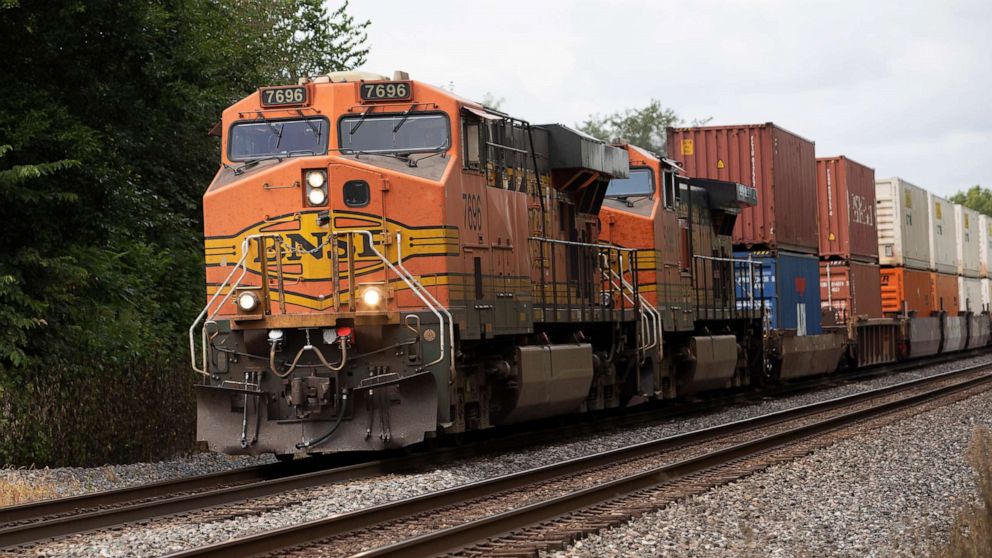

Jacobin writer Luke Savage thinks so. I am sympathetic to his argument. Here is Savage’s recent piece:
Earlier this year, the federal board charged with overseeing America’s rail network called a hearing to discuss widespread complaints about higher costs and poor service. Predictably enough, rail executives sought to blame the pandemic and labor shortages for the likes of gridlock and supply-chain breakdowns. But the dysfunction on America’s railroads is neither a product of COVID-19 nor the result of nebulous constructs like the so-called “Great Resignation.” As Matthew Buck explained earlier this year in an article for the American Prospect, the single biggest contributors have been corporate monopolism and financialization — both of which contributed to the horrendous working conditions at the center of the recent showdown in Congress.
And this:
As the late historian Tony Judt once explained, the very idea of competitive or market-based railroads is, for very straightforward reasons, fundamentally incoherent:
“You cannot run trains competitively. Railways — like agriculture or the mail — are at one and the same time an economic activity and an essential public good. Moreover, you cannot render a rail system more efficient by placing two trains on the same track and waiting to see which performs better: railways are a natural monopoly. . . . Trains, like buses, are above all a social service.”
Judt was primarily writing about Britain’s railways, but the essence of his argument applies to America’s as well. Actual “competition” is a non sequitur when it comes to railroads and, fittingly enough, private monopolism has left a handful of rail giants with what are essentially noncompetitive fiefdoms in different corners of the country. Deregulation has additionally allowed the tiny remaining handful of companies to discontinue service on unprofitable routes, leaving whole regions cut off. With greater control and fewer constraints on the terms of their operations, they’ve also been at liberty to raise prices and introduce new fees. Bottlenecks, in fact, often provide further opportunities for such price-gouging — one executive boasting on a 2019 earnings call that Union Pacific is in a position to “take some pretty robust pricing to the market” (i.e., charge more regardless of efficiency or the quality of service).
Read the entire piece here.
You might want to re-read your history on the railroads. First, I realize that as a progressive, you believe that the growth of the state (as long as the state is in the hands of the left) is a good thing, a thing of “progress,” so something like the formation of the Interstate Commerce Commission in 1887 would be portrayed as part of national progress. Yet, that is not the history of the ICC.
Far from creating a “better” system, the ICC effectively turned railroads into a national cartel. The railroads even were nationalized by the U.S. Army during World War I and the aspects of nationalization remained afterward. When the Carter administration moved toward railroad deregulation in 1980 via the Staggers Act, it was not done out of free market ideology. Jimmy Carter was a Democrat and the Congress that passed the deregulation law was dominated by the Democratic Party — unless I am to believe that Carter and Ted Kennedy, who played an active role in deregulation of transportation, finance, and telecommunications (and also beer) were right-wing Republicans.
By 1980, U.S. freight railroads were undercapitalized and approaching Third World status. The ICC had blocked innovations such as the Big John rail car that was able to increase volume in grain transportation and was outliving whatever usefulness it might have had. Since the passage of the Staggers Act, the U.S. rail freight system has become the best in the world, notwithstanding commentary from a magazine named after the Jacobins, which are well-known for instigating mass executions for political reasons and giving it the name of “Reign of Terror.”
As for the canard that deregulation is the political tool of the right, you might remember that Ronald Reagan in 1980 received the endorsement of the Teamsters Union by promising to delay trucking deregulation for two years. Reagan’s only real deregulation move was the disastrous deregulation of the Savings & Loan industry, and even that was mostly the result of efforts by Rep. Ferdinand St. Germain, Democrat from Rhode Island. For all the talk of Reagan and deregulation, Jimmy Carter was by far the most effective president in U.S. History when it came to changing the regulatory structure of key American industries.
There are other things you didn’t mention but are significant when it comes to moving freight in and into the USA. The Jones Act of 1920 has resulted in undercapitalized port systems in this country, as even countries like the Congo and Nigeria have much more modern and well-capitalized ports than what we see in this country. The Jones Act also has resulted in the increase of long-haul tractor trailer traffic and leads to huge bottlenecks at U.S. ports.
Because of the Jones Act about 40 percent of all U.S. imports come in through the ports at Long Beach and Los Angeles, California, and neither of those ports approach the needed capitalization to handle what comes in. Furthermore, trucking regulations in California along with AB-5 (which Joe Biden wants to make national law) have made those bottlenecks worse. All of these things translate into empty store shelves and increase the costs of everything from computers to medicine, although I realize that the standard line from Jacobin is to blame those evil capitalists and their markets and to claim that if the government had more control of the processes, that supply shortfalls would not exist. That is not true, but I realize in this day that truth doesn’t much matter anymore.
I would add that Donald Trump’s tariffs (and his continued support and enforcement of the Jones Act) damaged a number of U.S. industries — particularly automobile production — and made life costlier for average Americans. Unfortunately, Joe Biden has continued Trump’s tariff policy with all the negative results to follow.
Today’s NY Times Daily podcast is of internet for the topic of trains. While this post is not written to engage Williams’s points or the points of the post I did find the Times podcast very interesting as a report on the importance of Ukrainian railway. I am not sure about here in America and our system. That is an area for the experts when it comes to brain space in my head. Though I do love my ability to take a leisurely trip to NYC on Amtrak’s Keystone service from Harrisburg – not perfect, but it beats flying!
https://podcasts.apple.com/us/podcast/the-daily/id1200361736?i=1000589741067
Thanks for this, C. Yes–love the Keystone line!